This article was co-authored by William Gardner, PsyD and by wikiHow staff writer, Eric McClure. William Gardner, Psy.D. is a Clinical Psychologist in private practice located in San Francisco, CA’s financial district. With over 10 years of clinical experience, Dr. Gardner provides individually tailored psychotherapy for adults using cognitive behavioral techniques, to reduce symptoms and improve overall functioning. Dr. Gardner earned his PsyD from Stanford University in 2009, specializing in evidence-based practices. He then completed a post-doc fellowship at Kaiser Permanente.
There are 24 references cited in this article, which can be found at the bottom of the page.
This article has been viewed 9,714 times.
If you’re having a rough day or you’re feeling down, even the smallest tasks can feel like painful chores. It’s especially hard to fill your time if you fall into a cycle where you just zone out on the couch or scroll through your phone. If you’ve got a day to fill though, breaking that cycle by starting small is a great way to jumpstart your mood. Whether you're looking to get moving, relax, do something engaging, or socialize, we've got plenty of options for you. Keep in mind, it’s important to seek help if you’re dealing with depression. If you’re already in treatment, that’s great! If you aren’t, talk to your doctor as soon as you can.
Steps
Get Moving
-
1Take a short walk to start small and boost your mood. It’s hard to start doing something meaningful when you’re feeling down. To get the ball rolling, start small. Throw your shoes on and take a walk around your neighborhood. If it doesn’t sound fun right now, just push through and do it. Even if it’s just one block, starting with a little bit of movement will put you in a much better headspace.[1]
- If you’re just starting your day, try to kick things off the same way you normally do. If you wake up with a cup of coffee and a warm shower, do that first. Completing your morning routine is a great way to start the day right.
- If you’re in the mood for some tunes, throw on your headphones and get lost in some good music while you walk.
- There’s a lot of evidence that immersing yourself in nature can help alleviate symptoms of depression. If there’s a park or forest preserve near you, take a walk there.[2]
-
2Create a to-do list for the day if you aren’t ready to get moving. If you’re feeling really down and you can’t force yourself to get up off of the couch, that’s okay. Pull out a sheet of paper and make a list of everything you’re going to do when you’re in a better headspace. Not only is a solid to-do list helpful, but you may find this little activity motivating you to cross something off in a few minutes![3]
- Try to avoid piling on unnecessary tasks and long-term bigger goals. If you start listing every single major thing you’re going to tackle in the future, you may just get overwhelmed.
Advertisement -
3Try to get in some exercise to boost your mood. Regular exercise is one of the best ways to alleviate the symptoms of depression. It’s also a great way to help fill the day. Throw on some workout gear and go on a good run. If you have a gym near you, swing by and lift some weights. It’s okay if you don’t have the energy to leave the house, too—get some pushups or crunches in to break a sweat.[4]
- Exercising for 30 minutes a day is ideal, but even 10-15 minutes of exercise can be beneficial.
- Try to set up a routine for yourself. For example, you might go for a short walk one day, and then build up to a longer walk in the future.[5]
-
4Craft a healthy meal when you’re hungry to give your body a boost. It’s easy to put your diet aside when you’re going through a rough patch, but having a bite to eat is a great way to start the day off right. If you haven’t eaten anything, whip up something delicious and healthy. You’ll feel much better once you’ve got a little bit of food in your stomach.[6]
- For example, you could put together some chicken breasts with roasted tomatoes and peppers, or broil a salmon filet and sauté some broccoli. If it’s still kind of early, a fancy yogurt parfait with fresh fruit and nuts is a great option.
-
5Clean your home and organize your room to clear out any clutter. If your home is messy, it may be impacting the way you feel. Grab a trash bag and walk around your house to collect all of the garbage. Sweep the floor, do the dishes, and take a few minutes to clean up your desk. If your home is clean, your mind will be clear and you’ll find it much easier to relax. It’s also a great way to kill a few hours.[7]
- When you’re depressed, you’re more likely to be lethargic and skip out on regular household tasks. Cleaning up is a great way to catch up on your housework while eating through a few hours of your open day.
Relax
-
1Take a long, warm shower to chill out and improve your mood. If you feel like you’re in a rut and you want to jumpstart the way you feel, take a warm shower. The water and steam will stimulate your senses and leave you feeling refreshed and relaxed. Often, a long shower will help improve your headspace and give you a few minutes to recharge your batteries. It’s also a solid way to burn through 30-45 minutes.[8]
- Treat yourself a little bit by pulling out the fancy soap and shampoo. Do some exfoliating and treat it like a little spa trip.
- If you really want to go for a luxurious vibe, light some candles and throw on some calming music while you shower.
-
2Play and hang out with your pet if you have one. If you aren’t really in the mood to hear someone else’s voice right now but you’re feeling a little lonely, hang out with your pet! Play with your cat or dog, or try to teach them a new trick. If you have a hamster or something, just let them out on your desk and hang out with them for a while. Spending time with a pet is great way to chill out for a little bit.[9]
- Taking a dog for a walk is a great way to get outside for a little and take your mind off of things.
-
3Do some guided mediation to cool off and boost your mood. If you’ve never meditated before, now might be the perfect time to start! Pull up a guided meditation video on YouTube or download a free meditation app, like Headspace. Then, follow the instructions to do some deep breathing and relaxation.[10] It may feel a bit cheesy the first time you try it, but guided meditation is a great way to improve the way you’re feeling and relax.[11]
- There’s scientific evidence that meditation is physically good for you. If you meditate regularly, you may reap the benefits of lower blood pressure, stabilized blood sugar, and a reduction in stress-causing hormones![12]
- If you’re up for a little physical exercise, yoga is another great way to relax. If you aren’t in the mood for physical activity right now though, meditation is definitely the way to go.
-
4Take a short 20-minute nap if you haven’t been sleeping well. If you’re trying to fill a day and you haven’t been getting enough sleep, take a short nap. It’s normal to have trouble staying asleep at night when you’re depressed, so this is a good opportunity to catch up on sleep debt.[13] If you go this route, take your nap before 3 pm and don’t sleep for more than 20 minutes. You might disrupt your sleep schedule further if you overdo it on the snoozing.[14]
- Some people dealing with depression already nap frequently, since daytime fatigue is a common symptom of depression. If this is the case for you, taking a nap may not be the best option for relaxation. While it isn’t the end of the world if you do take a nap, it may not be the best way to relax if you’re already in the habit of falling asleep during the day.[15]
Do Something Engaging
-
1Play a game to get lost in something interactive and immersive. If you’re not emotionally in a place where you can be productive or social, at least do something fun. Pull up a video game on your TV or hop online and poke around for a game that looks interesting. It may sound crazy, but there’s plenty of research that indicates games can help alleviate symptoms of depression.[16]
- Just be careful not to overdo it if you’re playing video games. While there’s nothing wrong with spending a few hours playing a game you love, it isn’t healthy to sit in one place and zone out playing for 6-12 hours.[17]
- For video games, the type of game you play may have an impact on your mood. Consider giving the first-person shooters and horror games a break and give a casual puzzle game or walking simulator a shot.[18]
- Board games are a great option if you live with your family or roommates.
-
2Read a book to lose yourself in a good story and fill your time. If you want something a little less interactive, pick up a new book and start reading. If there’s a book you’ve read before that’s sure to boost your mood, that’s fine, too. Losing yourself in a story is a great way to burn through a few hours. Reading is also good for your mind and entertaining as well, so there’s no real downside here.[19]
- If you enjoy a good soak, take a warm bath and read for a while. This is an awesome way to relax and cool off.
-
3Doodle or make some art to spark some positive creative energy. Pull out a sketchpad or grab a blank sheet of paper and start doodling. Drawing stimulates your brain and encourages you to think creatively. If you prefer painting or taking photographs, do that. This is a good way to push your brain out of any boredom you’re experiencing and it’s a great way to break up the monotony of a slow day.[20]
- Don’t worry if you aren’t any good at drawing. Sketch out whatever you’d like and just keep the pencil moving. You don’t have to frame whatever you’re doing, let alone show it to anyone. It’s more of an exercise than anything else.
Socialize
-
1Contact a few friends to see if anyone wants to hang out. Being social is one of the best ways to boost your mood and fill your day. Call a few friends and ask them what they’re up to. You can invite them to come over and hang out, or simply ask them if you can visit them. This is a phenomenal way to spend your day, and it’s very likely to help you get out of the funk you’re in.
- There’s nothing wrong with saying, “I’m feeling really down today and I could use some company.” A good friend will have no problem showing up to hang out.
- Even if you can’t visit a friend in person, ask them if they want to hang out over FaceTime or Zoom. Seeing a friendly face is always better than calling them.
-
2Visit your family and spend the day hanging with them. Your family will always have your back, especially if you’re feeling a little blue. Call your family and ask them if you can swing by for a visit. If you live with your family, ask them if they want to hang out, take a walk, or see a movie. Spending a day with your family is a great way to fill your time with people who care about you.
- If a parent or sibling is making dinner or going shopping, just ask them if you can tag along and help. They’ll probably appreciate it anyway!
-
3Look for a support group meeting today in your area. Depending on where you live, there may be mental health support groups that regularly meet in your area. Go online and search for support groups in your city to see if there are any free meetings you can attend today. This is an especially great option if you want to talk through the way you’re feeling with other people who will understand what you’re going through.[21]
- It can be intimidating to introduce yourself to new people, but remember that anyone at one of these meetings will be sympathetic, friendly, and welcoming.
- If you live in the United States, you can search the National Alliance on Mental Awareness’s website to find registered support groups in your area.[22]
-
4Call a non-emergency hotline to chat with someone or get support. You may know about emergency hotlines, but there are non-emergency alternatives you may not know about if you just want to hear a friendly voice. Calling one of these numbers and talking with someone is also a great way to get support or advice. Just dial the number, introduce yourself, and talk about whatever is on your mind.
- The Samaritans (877-870-4673) are a non-profit group that offers support to anyone looking for a kind voice to chat with.[23]
- If you don’t want to talk over the phone, there are online chat and text-based options out there.
Expert Q&A
-
QuestionWhy is it so difficult to feel better when I'm depressed?
 William Gardner, PsyDWilliam Gardner, Psy.D. is a Clinical Psychologist in private practice located in San Francisco, CA’s financial district. With over 10 years of clinical experience, Dr. Gardner provides individually tailored psychotherapy for adults using cognitive behavioral techniques, to reduce symptoms and improve overall functioning. Dr. Gardner earned his PsyD from Stanford University in 2009, specializing in evidence-based practices. He then completed a post-doc fellowship at Kaiser Permanente.
William Gardner, PsyDWilliam Gardner, Psy.D. is a Clinical Psychologist in private practice located in San Francisco, CA’s financial district. With over 10 years of clinical experience, Dr. Gardner provides individually tailored psychotherapy for adults using cognitive behavioral techniques, to reduce symptoms and improve overall functioning. Dr. Gardner earned his PsyD from Stanford University in 2009, specializing in evidence-based practices. He then completed a post-doc fellowship at Kaiser Permanente.
Clinical Psychologist Think of depression like the bevel of a screw—it can feel like a downward spiral. For instance, it might start with a little bit of low energy, and then spiral into a little bit of social isolation, a little bit of a depressive mood, and so on. The problem with the depression is that, like a screw, you can't just back it up, or pull it out like a nail. Instead, you've got to back it out.
Think of depression like the bevel of a screw—it can feel like a downward spiral. For instance, it might start with a little bit of low energy, and then spiral into a little bit of social isolation, a little bit of a depressive mood, and so on. The problem with the depression is that, like a screw, you can't just back it up, or pull it out like a nail. Instead, you've got to back it out. -
QuestionHow can I lift my mood without medication?
 William Gardner, PsyDWilliam Gardner, Psy.D. is a Clinical Psychologist in private practice located in San Francisco, CA’s financial district. With over 10 years of clinical experience, Dr. Gardner provides individually tailored psychotherapy for adults using cognitive behavioral techniques, to reduce symptoms and improve overall functioning. Dr. Gardner earned his PsyD from Stanford University in 2009, specializing in evidence-based practices. He then completed a post-doc fellowship at Kaiser Permanente.
William Gardner, PsyDWilliam Gardner, Psy.D. is a Clinical Psychologist in private practice located in San Francisco, CA’s financial district. With over 10 years of clinical experience, Dr. Gardner provides individually tailored psychotherapy for adults using cognitive behavioral techniques, to reduce symptoms and improve overall functioning. Dr. Gardner earned his PsyD from Stanford University in 2009, specializing in evidence-based practices. He then completed a post-doc fellowship at Kaiser Permanente.
Clinical Psychologist Try building an active routine for yourself. For instance, each day you might go for a walk or head to the gym. In the future, you might expand on that routine by going for a run instead.
Try building an active routine for yourself. For instance, each day you might go for a walk or head to the gym. In the future, you might expand on that routine by going for a run instead. -
QuestionHow can I meditate at home for free?
 Michelle Shahbazyan, MS, MAMichelle Shahbazyan is the Founder of The LA Life Coach, a concierge life, family, and career coaching service based in Los Angeles, California. She has over 10 years of experience with life coaching, consulting, motivational speaking, and matchmaking. She has a BA in Applied Psychology and an MS in Building Construction and Technology Management from Georgia Tech University, and a MA in Psychology with an emphasis on Marriage and Family Therapy from Phillips Graduate University.
Michelle Shahbazyan, MS, MAMichelle Shahbazyan is the Founder of The LA Life Coach, a concierge life, family, and career coaching service based in Los Angeles, California. She has over 10 years of experience with life coaching, consulting, motivational speaking, and matchmaking. She has a BA in Applied Psychology and an MS in Building Construction and Technology Management from Georgia Tech University, and a MA in Psychology with an emphasis on Marriage and Family Therapy from Phillips Graduate University.
Matchmaker, The LA Life Coach Try a free meditation app, such as Headspace. You can also find guided meditations on YouTube.
Try a free meditation app, such as Headspace. You can also find guided meditations on YouTube.
Warnings
- Stay away from unproductive forms of self-medication. Killing time by drinking alcohol, smoking, doing drugs, or eating unhealthy food is only going to make you feel worse in the long run.[25]⧼thumbs_response⧽
- Unless you’re chatting with a friend or something, try to stay off of your phone. Social media and the news has a tendency to make your mood worse, which is definitely not the goal if you’re dealing with depression right now.[26]⧼thumbs_response⧽
References
- ↑ https://www.helpguide.org/articles/depression/coping-with-depression.htm
- ↑ https://news.stanford.edu/2015/06/30/hiking-mental-health-063015/
- ↑ https://www.nami.org/Blogs/NAMI-Blog/April-2016/Five-Ways-to-Stay-Productive-During-Depression
- ↑ https://www.health.harvard.edu/mind-and-mood/more-evidence-that-exercise-can-boost-mood
- ↑ William Gardner, PsyD. Clinical Psychologist. Expert Interview. 25 July 2019.
- ↑ https://www.health.harvard.edu/blog/diet-and-depression-2018022213309
- ↑ https://hbr.org/2019/03/the-case-for-finally-cleaning-your-desk
- ↑ https://health.clevelandclinic.org/reasons-to-take-a-bath/
- ↑ https://www.helpguide.org/articles/depression/coping-with-depression.htm
- ↑ Michelle Shahbazyan, MS, MA. Life Coach. Expert Interview. 18 March 2020.
- ↑ https://www.health.harvard.edu/staying-healthy/what-meditation-can-do-for-your-mind-mood-and-health-
- ↑ https://www.mayoclinic.org/healthy-lifestyle/stress-management/in-depth/relaxation-technique/art-20045368
- ↑ http://healthysleep.med.harvard.edu/need-sleep/whats-in-it-for-you/mood
- ↑ https://www.sleepfoundation.org/sleep-hygiene/napping
- ↑ https://pubmed.ncbi.nlm.nih.gov/1345431/
- ↑ https://www.ncbi.nlm.nih.gov/pmc/articles/PMC5816361/
- ↑ https://www.ncbi.nlm.nih.gov/pmc/articles/PMC6676913/
- ↑ https://www.liebertpub.com/doi/full/10.1089/g4h.2019.0132
- ↑ https://www.theguardian.com/books/booksblog/2018/oct/26/just-how-helpful-is-reading-for-depression
- ↑ https://www.apa.org/monitor/2013/07-08/dull-moment
- ↑ https://www.helpguide.org/articles/depression/coping-with-depression.htm
- ↑ https://www.nami.org/Support-Education/Support-Groups
- ↑ https://samaritanshope.org/about-988/
- ↑ https://www.cnn.com/2014/03/21/health/homework-stress/index.html
- ↑ https://www.helpguide.org/articles/addictions/self-medicating.htm
- ↑ https://www.nbcnews.com/health/health-news/social-media-use-linked-depression-adults-rcna6445





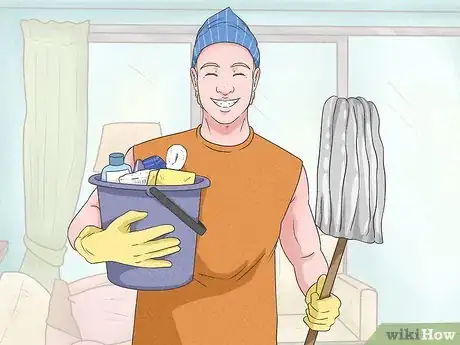
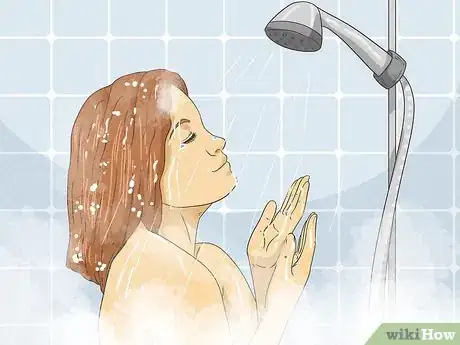
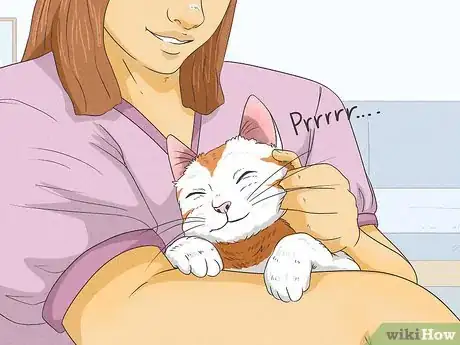
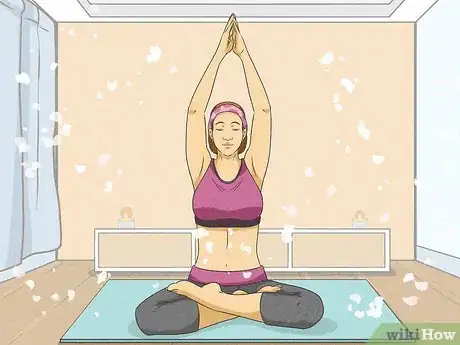

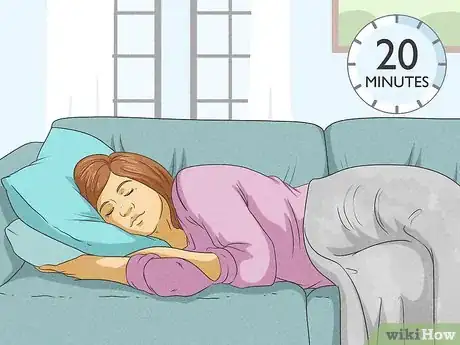
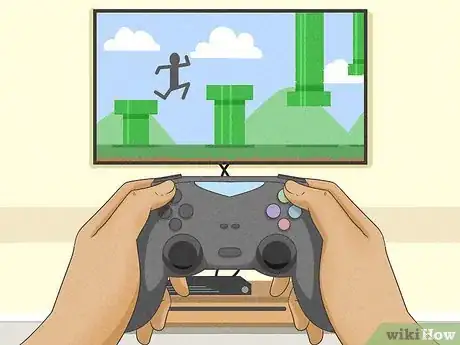
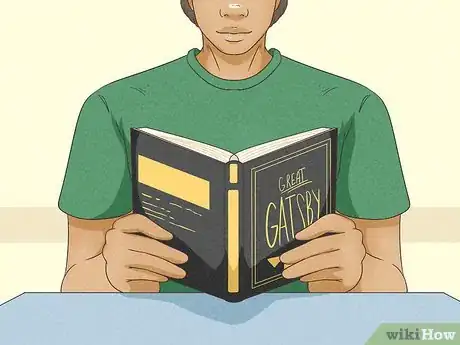
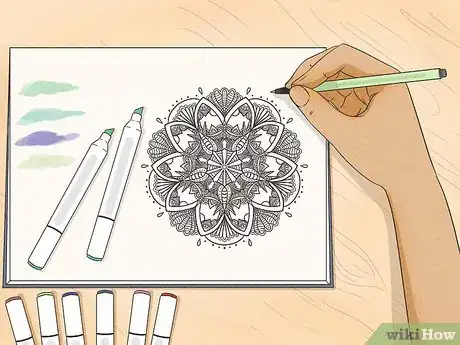
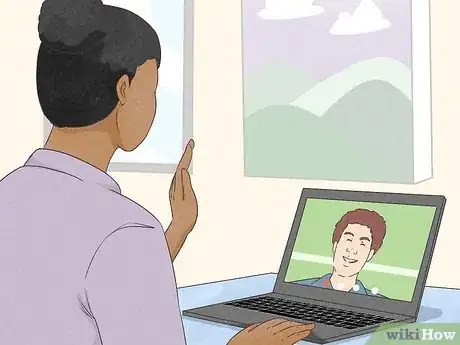
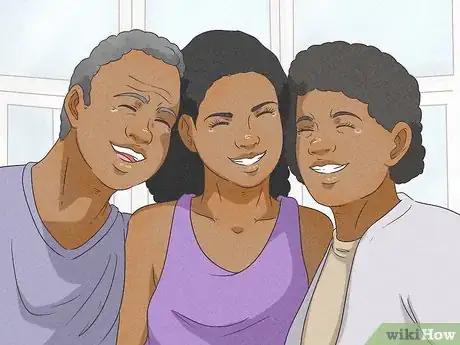


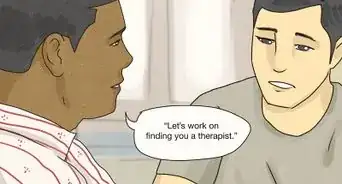

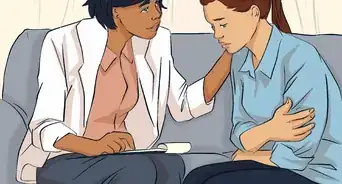

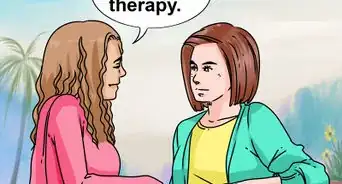




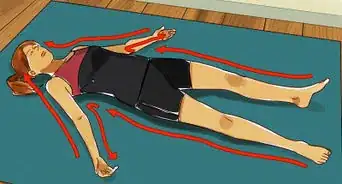
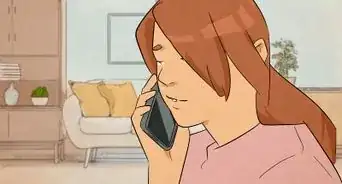
















































Medical Disclaimer
The content of this article is not intended to be a substitute for professional medical advice, examination, diagnosis, or treatment. You should always contact your doctor or other qualified healthcare professional before starting, changing, or stopping any kind of health treatment.
Read More...